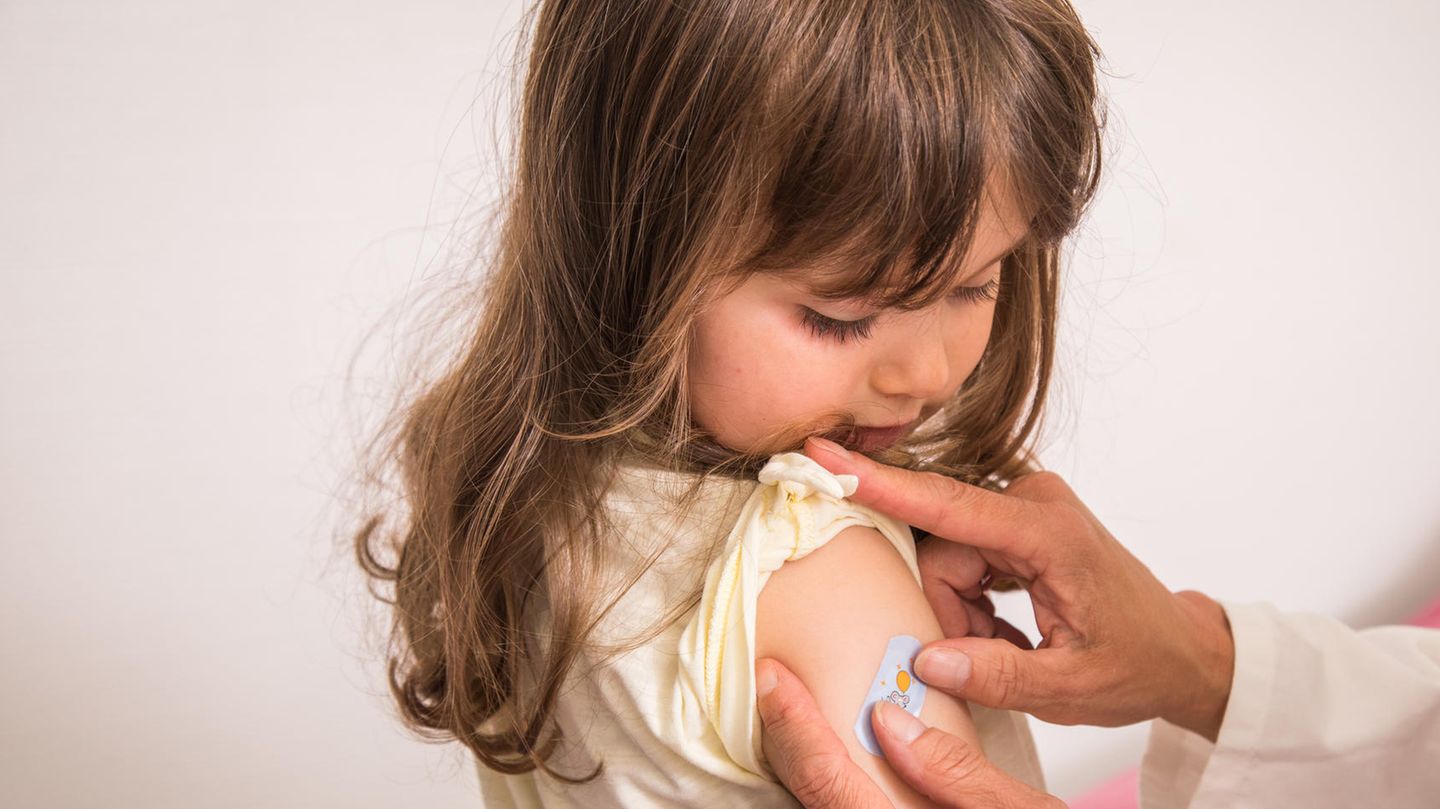Starting this week, children from the age of five can be immunized against the coronavirus. However, many parents are still unsure whether or not to have their little one vaccinated. One reason: the vaccine side effect myocarditis. What do you know about it.
In the fight against the corona virus, Germany is further expanding its vaccination campaign. Starting this week, children aged five and over can be vaccinated with the Biontech / Pfizer vaccine. The Standing Vaccination Commission (Stiko) does not recommend vaccination in general for all children of this age group, but for those with previous illnesses and contact with high-risk patients. But also healthy children should be able to be immunized if desired. But how safe is it?
In other countries the syringes have been used for a long time. Most of the Covid 19 vaccinations in this age group have been in the USA in recent weeks: According to the CDC, around five million children between the ages of five and eleven have received at least one dose of the mRNA vaccine from Biontech / Pfizer. Canada and Israel have also at least first vaccinated tens of thousands of children. So far nothing has been known about serious side effects.
Risk of myocarditis?
The vaccines are safe for young children, said Rochelle Walensky, head of the highest US disease authority CDC, especially with regard to the vaccine side effect myocarditis. This is an inflammation of the heart muscle, which can manifest itself with chest pain, palpitations, cardiac arrhythmias and even heart failure. However, according to Walensky, these side effects have not yet been observed in the group of five to eleven year olds. “We haven’t seen anything yet,” she said in an interview with ABC News. Myocarditis can occur in children and adults and has been observed in very rare cases in connection with vaccination with mRNA vaccines in adolescents from the age of twelve and in young adults.
This coincides with the results of the registration study by Biontech / Pfizer, in which 2,268 five to eleven year olds participated and in which no cases of myocarditis were observed either. “The safety profile and immunogenicity data in children 5 to 11 years of age who were vaccinated at a lower dose are consistent with those we have seen with our vaccine in other older populations at a higher dose,” said Biontech- Founder Ugur Sahin.
The security data are solid, and more data is constantly being added. According to Walensky, the vaccine is safe for children. “We have an incredibly robust vaccine safety system, if there were (problems) we would find them,” she said. Still, many parents in the United States remain skeptical. According to a survey by the non-profit Kaiser Family Foundation (KFF), two thirds do not want their elementary school children to be vaccinated, or at least want to wait. So far, not even every fifth child in the age group of five to eleven has received a corona vaccination.
Fluctuating estimates
Estimates of vaccine-related myocarditis cases vary, according to Scientific American. But even the highest estimates point to fewer than 200 cases per million fully vaccinated male adolescents between the ages of 12 and 15 and are therefore “extremely rare”. There were around 30 reported cases among girls of this age. Scientists from the US drug agency FDA have outlined the benefits and risks of corona vaccination in children in a model. In it, they show, among other things, that the risk of heart muscle inflammation in connection with a corona infection is higher than after a vaccination. (To see that.)

Those who developed vaccine side effects usually had chest pain and felt bad for a day, blood tests showed inflammation of the heart, according to Sallie Permar, chair of the pediatric department at Weill Cornell Medicine and chief pediatrician at New York- Presbyterian Komansky Children’s Hospital, opposite Scientific American. They would be hospitalized for surveillance and usually released after a day. “This is completely different from the myocarditis that we see in connection with the virus itself,” says Permar. An infection-related myocarditis often requires life-saving measures, and the hospital stay is on average not one but six days. Experts believe that the risk of vaccine-related myocarditis is lower in children between the ages of five and eleven than in older children.
According to the current safety report of the Paul Ehrlich Institute (PEI, as of September 30), 1243 suspected myo- or pericarditis cases in connection with a vaccination were reported in Germany. Pericarditis is inflammation of the heart sac. Male 12 to 30 year olds were most affected. Most of those affected were hospitalized, but the majority had an initially uncomplicated course after receiving medical care. According to Stiko, people who developed such a vaccine side effect after immunization with an mRNA vaccine should not receive any further dose of such a vaccine. Exceptions in individual cases are possible.
Stiko remains cautious
The head of the Standing Vaccination Commission (Stiko), Thomas Mertens, remains cautious despite the findings from the USA. In an interview with the German Press Agency last Thursday, he said that the US data were not yet certain. Most of the children are still missing the second vaccination. “In the USA, as with us, there is a spontaneous reporting procedure for side effects and you have to assume a longer delay in reporting. We have received verbal reports from colleagues in the USA that there are very few well-run cases of myocarditis there after vaccinations, even with five- until eleven-year-olds. ” But at the moment nothing can be said about the frequency and importance. There are no direct indications of a risk of vaccination in this age group, but there is also no sufficiently reliable database to finally assess the safety, according to Mertens.
“According to our analysis, including all data from the current fourth wave, the burden of disease in children in this age group is low,” said Mertens. Most of the time, infections proceeded with no or only very mild signs of illness. “Very few children – less than 1 in 10,000 infected people in this age group – require hospital treatment. And even with them, the course is favorable.” In Germany, during the entire previous pandemic, there were no deaths from Covid-19 in children without previous illnesses at that age. But what about long-term and long-term effects such as long covid and the inflammatory syndrome PIMS?
Stiko has also dealt with these topics. Mertens said about three out of 10,000 infected children developed PIMS. “But even there there were no deaths and the children could be treated successfully.” Long Covid is “scientifically still very unclear” for these children. There are hardly any really reliable studies that allow a distinction to be made whether symptoms were caused by pandemic-related restrictions or the infection. “Previous studies with control groups have not shown a certain specific effect of the infection,” said Mertens. It is also still unclear what role the new Omikron variant will play in the course of the pandemic. The first reports from South Africa about severe courses in children are not yet so reliable. It takes more time and well-designed studies for the assessment.
Source:,,,, dpa
Source From: Stern




